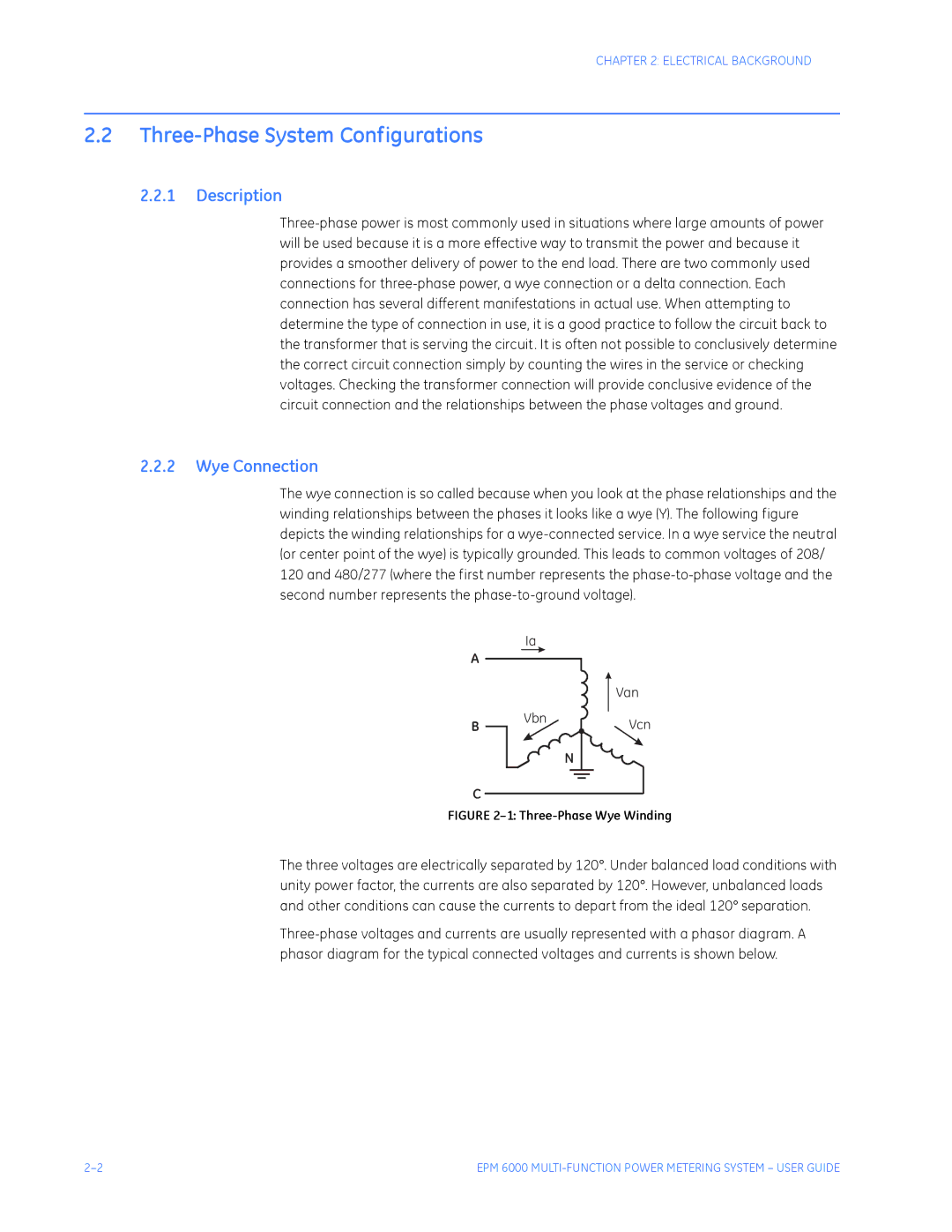
CHAPTER 2: ELECTRICAL BACKGROUND
2.2Three-Phase System Configurations
2.2.1Description
Three-phase power is most commonly used in situations where large amounts of power will be used because it is a more effective way to transmit the power and because it provides a smoother delivery of power to the end load. There are two commonly used connections for three-phase power, a wye connection or a delta connection. Each connection has several different manifestations in actual use. When attempting to determine the type of connection in use, it is a good practice to follow the circuit back to the transformer that is serving the circuit. It is often not possible to conclusively determine the correct circuit connection simply by counting the wires in the service or checking voltages. Checking the transformer connection will provide conclusive evidence of the circuit connection and the relationships between the phase voltages and ground.
2.2.2Wye Connection
The wye connection is so called because when you look at the phase relationships and the winding relationships between the phases it looks like a wye (Y). The following figure depicts the winding relationships for a wye-connected service. In a wye service the neutral (or center point of the wye) is typically grounded. This leads to common voltages of 208/
120and 480/277 (where the first number represents the phase-to-phase voltage and the second number represents the phase-to-ground voltage).
Ia
A
Van
FIGURE 2–1: Three-Phase Wye Winding
The three voltages are electrically separated by 120°. Under balanced load conditions with unity power factor, the currents are also separated by 120°. However, unbalanced loads and other conditions can cause the currents to depart from the ideal 120° separation.
Three-phase voltages and currents are usually represented with a phasor diagram. A phasor diagram for the typical connected voltages and currents is shown below.
2–2 | EPM 6000 MULTI-FUNCTION POWER METERING SYSTEM – USER GUIDE |

